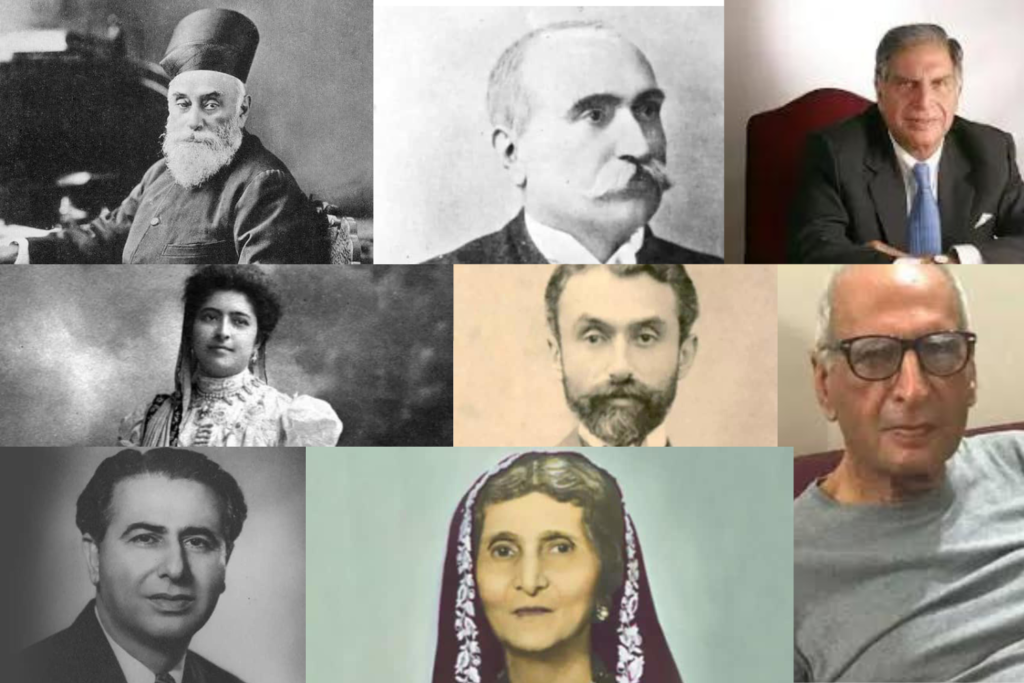The Tata Group, a globally renowned conglomerate worth billions, has transcended its status as merely a brand name. Through decades of dedication and innovation, this esteemed family has built a vast business empire across numerous industries, including steel, automobiles, hospitality, and telecommunications. While the revered industrialist Ratan Tata is widely recognized, the rich lineage of the Tata family remains lesser-known to many.
A Pinnacle of Success in Indian Conglomerates
The Tata Group stands as a pinnacle of success among Indian conglomerates, boasting a portfolio of over 100 companies spanning diverse sectors such as chemicals, consumer goods, and services. Its inception dates back to 1868 in Mumbai, India. The visionary founder, Jamsetji Tata, made significant strides by establishing India’s premier luxury hotel, the Taj Mahal Palace & Tower. After his death, his son, Sir Dorab Tata, expanded the company into steel, electricity, and various other industries, acquiring global assets such as Tetley Tea and Jaguar Land Rover, and more recently, Air India.
The illustrious Tata lineage, originating from Navsari in Gujarat and flourishing in Mumbai, finds its nucleus in Tata Sons, the overarching entity steering numerous Tata Group enterprises. Delving into the trajectory from Jamsetji to Ratan Tata unveils the enduring legacy and strategic acumen of this revered family. Join us on a journey through the intricate tapestry of the Tata legacy and its profound influence on India’s corporate landscape.
Jamsetji Tata
Jamsetji Tata was more than a shrewd businessman; he embodied patriotism and genuine concern for people’s welfare. His business endeavors, starting with textiles and diversifying into steel and hydroelectric power, aimed at enhancing livelihoods. He prioritized providing conducive working conditions and envisioned an entire city for his workforce’s well-being. His commitment to education led to the establishment of scholarships for aspiring Indian students. Jamsetji Tata’s legacy continues to propel India’s progress and prosperity.
Hirabai Daboo
Hirabai Daboo was the beloved spouse of Jamsetji Tata. Together, they nurtured a family, including their notable sons, Dorabji Tata and Ratanji Tata, who would later uphold their father’s heritage and spearhead the Tata empire’s continued growth.
Dorabji Tata
Dorabji Tata, Jamsetji Tata’s son, played a pivotal role in expanding the Tata Group and championing sports and charitable causes. He demonstrated remarkable leadership, particularly during crises like the steel industry downturn. Dorabji was a strong supporter of Indian sports, facilitated India’s participation in the Olympics, and established charitable trusts for various philanthropic endeavors.
Meherbai Bhabha
Meherbai Bhabha, Dorabji Tata’s wife, was committed to advocating for women’s education and combating social injustices. Her contributions to advancing scientific research and educational opportunities for Indian women left a lasting legacy of empowerment and enlightenment.
Sir Ratan Tata
Sir Ratan Tata, born in 1871, embraced philanthropy and supported various causes, including disaster relief, education, and healthcare. He made substantial contributions to Mumbai’s Prince of Wales Museum and established a chair for poverty research at the London School of Economics. Knighted in 1916, he bequeathed much of his wealth to charitable endeavors, culminating in the establishment of the Sir Ratan Tata Trust in 1919.
Navajbai Sett
Navajbai Sett, Sir Ratan Tata’s wife, dedicated herself to the welfare of underprivileged women and established the Ratan Tata Institute. Following her husband’s death, she curated his art collection and completed their Bombay residence, Tata House.
Naval Tata
Naval Tata led a multifaceted life encompassing business, philanthropy, sports, and joviality. A prominent figure in the Tata Group, he was known for his compassion, contributions to business, sports administration, and charitable endeavors. His efforts in labor relations fostered harmony between workers and management, significantly shaping Indian hockey and labor policies.
Sooni Commissariat and Simone Dunoyer
Sooni Commissariat, married to Naval Tata, bore two sons, Ratan and Jimmy. Simone Dunoyer, Naval’s second wife, played a pivotal role in elevating Lakmé into a renowned cosmetic brand and established Trent, the parent company of Westside stores. Her philanthropic efforts focused on aiding marginalized groups, especially women and children.
Ratan Naval Tata
Ratan Naval Tata, a renowned industrialist and philanthropist, led the Tata Group for 22 years, overseeing its global expansion and significant acquisitions. Known for his philanthropy, he champions various causes, including clean water initiatives, scholarships, and support for educational institutions. Despite a challenging childhood and remaining unmarried, Ratan Tata ensured the Tata Group’s continued prosperity and facilitated a seamless transition to his successor.
Jimmy Naval Tata
Jimmy Naval Tata, Ratan Tata’s reclusive younger sibling, leads a modest life focused on literature and maintains a passive involvement in business affairs, retaining shares in Tata companies.
Noel Tata and Aloo Mistry
Noel Tata, Ratan Tata’s half-brother, presides over Trent and Tata Investment Corporation. His wife, Aloo Mistry, is kin to former Tata Group chairman Cyrus Mistry. Their children, Neville, Leah, and Maya Tata, represent the next generation poised to inherit the Tata empire.
The Next Generation
- Neville Tata spearheads the expansion of Zudio stores and is married to Manasi Kirloskar, another influential family’s scion.
- Leah Tata works in the hospitality sector and serves as a trustee of a Tata hospital in Kolkata.
- Maya Tata continues the family’s entrepreneurial legacy, positioning herself within the milieu of business luminaries.
The Tata family’s enduring legacy, built on a foundation of innovation, philanthropy, and strategic acumen, continues to shape India’s corporate landscape, ensuring prosperity and progress for future generations.

